SUMMARY
This is AI generated summarization, which may have errors. For context, always refer to the full article.
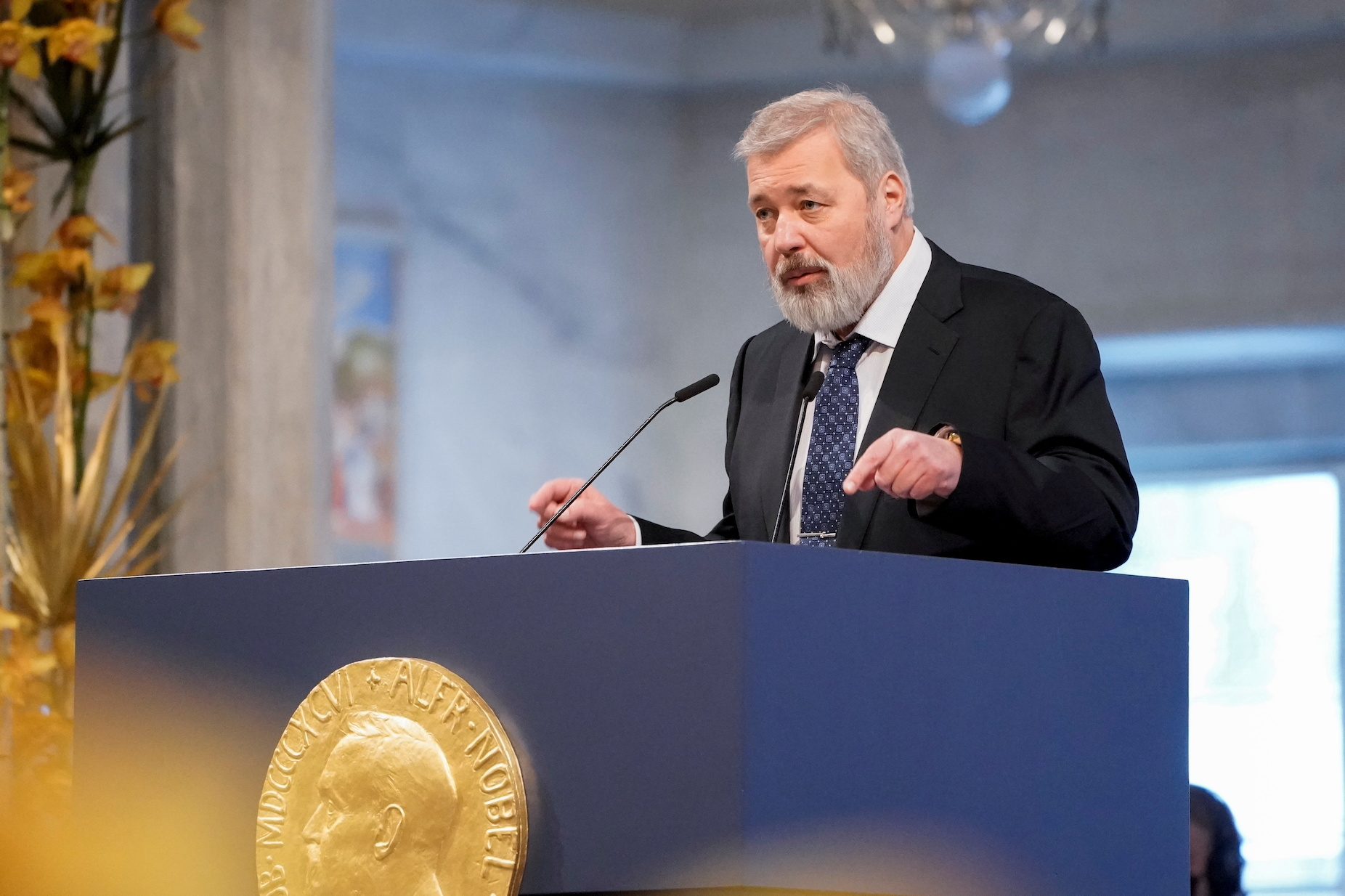
MANILA, Philippines – On the Nobel stage in Oslo City Hall in Norway, journalist Dmitry Muratov accepted the honor of becoming the third Russian to be awarded the Nobel Peace Prize in its 126-year legacy. But in the history-making moment, Muratov turned the focus elsewhere, telling the story of Russia’s press, the sacrifices of its ranks, and his hopes for its future.
“Journalism in Russia is going through a dark valley,” Muratov said. Branded as “foreign agents,” hundreds of journalists have been marked with tags that labeled them as “enemies of the people,” forcing them to lose their jobs, while others were forced to leave the country for safety.
It’s a danger Muratov and the paper he leads, Novaya Gazeta, know all too well. From 2000 to 2009, the newsroom lost six of its own to murder, after its journalists and contributors pursued investigations tied to corruption and human rights abuses in conflict-ridden areas, including Chechnya and eastern Ukraine.
Yet in the face of these costs, Muratov remained clear-eyed about the role of journalists, sharing in his speech the stakes facing many countries where freedom of the press, speech, and conscience were under threat.
“The world has fallen out of love for democracy…. We’ve got an illusion that progress can be achieved through technology and violence, not through human rights and freedoms,” Muratov said, adding later, “We are journalists, and our mission is clear – to distinguish between facts and fiction.”

Muratov, 60, received the prize along with Maria Ressa, 58, who co-founded the independent news outlet Rappler in the Philippines. Both of them lead critical newsrooms in countries where journalists are increasingly persecuted and governments enable disinformation.
In accepting the award, both Muratov and Ressa recounted the lives of journalists that were lost in pursuit of facts and those who continue to suffer to hold the powerful to account. Muratov also paid tribute to entire staff of Novaya Gazeta and six of the paper’s journalists murdered for their work – Igor Domnikov, Yuri Shchekochikhin, Anna Politkovskaya, Stas Markelov, Anastasia Baburova, Natasha Estemirova.
“‘Are not you afraid?’” Muratov said, recalling a common question he and his colleagues were often asked. “But this is their mission. As governments continually improve the past, journalists try to improve the future.”
In this endeavor, Muratov shared in earnest, “I want journalists to die old.”

‘I’m ready’
Standing in the world-famous gilded hall on Friday, December 10, Muratov continued to call on those in power to improve the lives of those who were suffering from injustice, conflict, and debilitating illnesses.
To United Nations Secretary General António Guterres, Muratov said Russian journalists continue to call for justice for Orkhan Dzhemal, Kirill Radchenko, Alexander Rastorguyev who were shot in the Central African Republic in 2018, as they were investigating the activity of a Russian private military company.
“Guterres has promised to assist in the investigation. He might have forgotten his promise. This is just a reminder,” Muratov said.
To the pharmaceutical industry, “Maybe they can open their wallets for available drugs and early diagnostics? Maybe the rich will find some money to help several tens of thousands of boys and girls whose heart is still beating?” he raised. Novaya Gazeta has been covering the situation of children with spinal muscular atrophy and rare diseases, who required expensive treatment to live.
And with himself, Muratov offered for prisoners in captivity due to war and conflict, “If I, in my new status, can do anything to bring home prisoners who are still alive, please say so. I’m ready.”
‘Antidote to tyranny’
Like in the Philippines, Muratov’s Nobel honor wasn’t welcomed by all parties.
A New York Times report detailed how the prize triggered fault lines among critics of Putin’s Russia and how to safeguard vanishing freedoms. “Is the best approach for those wishing for change one of principled and unyielding resistance, or of working for improvements within the existing system?” the Times wrote.
But Muratov drew the lines – with all who fought to defend democratic freedoms on one side, and those who threatened this, on the other.
“There is a saying in Russian and English and other languages: ‘Dogs bark but the caravan goes on’…. The government sometimes derisively say the same about journalists. They bark, but it does not affect anything,” Muratov said.
“But I was recently told that the saying has an opposite explanation. The caravan drives forward because of the dog’s bark. They growl and savage the predators in the mountains and the desert. The caravan can move forward only with the dogs around,” he added.
Muratov said, “Yes, we growl and bite. Yes, we have sharp teeth and strong grip. But we are the prerequisite for progress. We are the antidote against tyranny.”
Aside from Muratov, Soviet nuclear physicist Andrei D. Sakharov and Soviet leader Mikhail Gorbachev were honored with the Nobel Peace Prize in 1972 and in 1990, respectively. – Rappler.com
Add a comment
How does this make you feel?
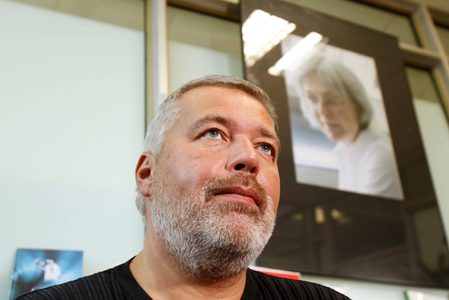
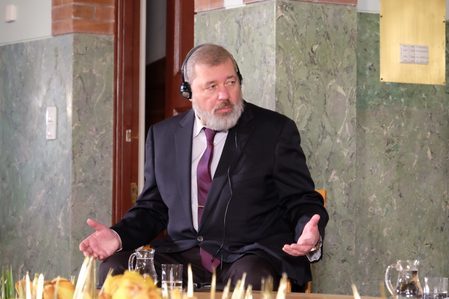
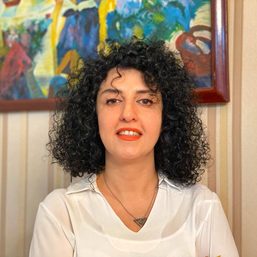
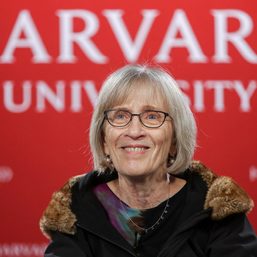
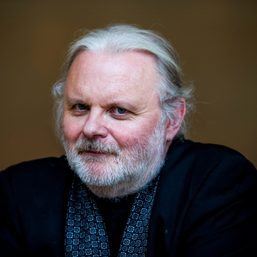

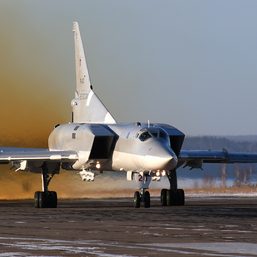

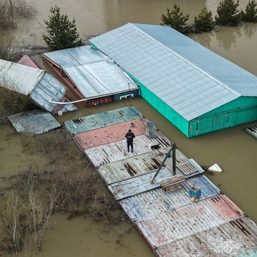

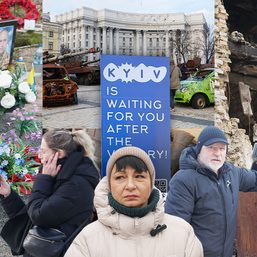
There are no comments yet. Add your comment to start the conversation.